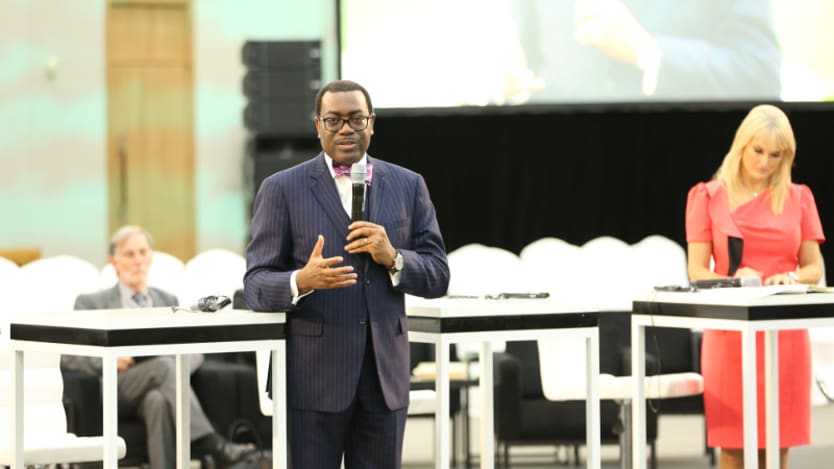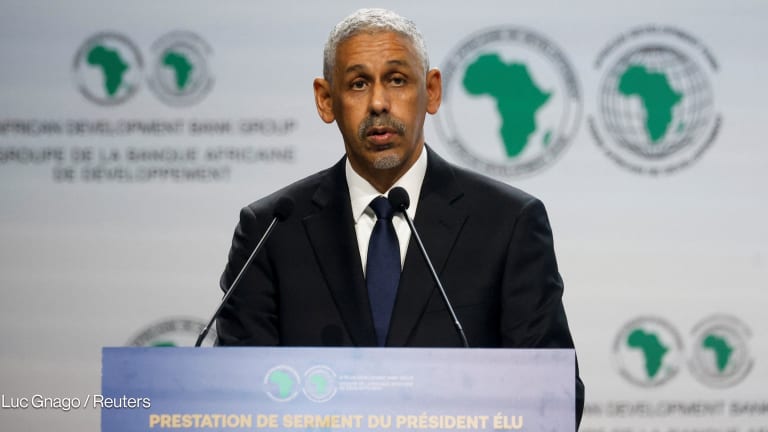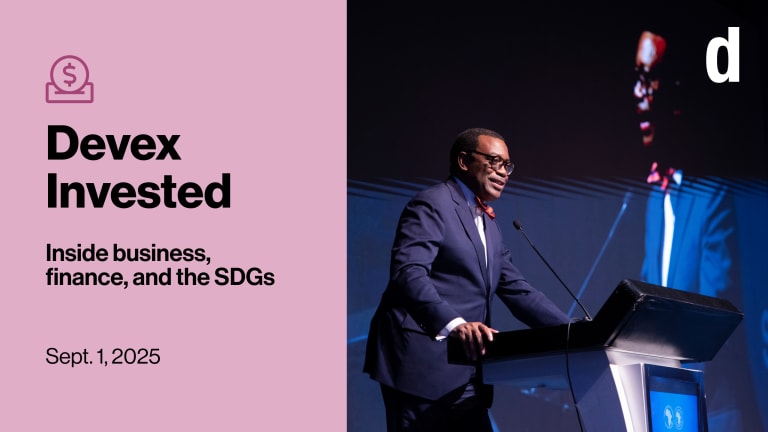
BUSAN, SOUTH KOREA — Several African countries are determined to help build a culture of insurance on the continent as a tool for disaster resilience. Already, it’s possible for governments to take out an insurance policy with African Risk Capacity and to approach the African Development Bank for premium financing support.
Down the road, African nations could see insurance premium relief in the form of private sector co-financing as well, based on an unexpected interaction between a renewable energy company and government leaders at the AfDB meetings this week in Busan, South Korea.
Africa contributes no more than 2-3 percent of greenhouse gas emissions, but suffers disproportionately from the negative impacts of climate change, AfDB President Akinwumi Adesina reminded attendees of the bank’s 53rd Annual Meeting on Wednesday.
Catch up on the AfDB meetings:
► World Bank's Jim Yong Kim weighs in on Africa's industrialization
“All across Africa, you see today the high frequency of droughts,” Adesina said.
“Africa has been shortchanged by the climate financing architecture. Therefore, we need instruments that will help mitigate climate risks.”
One of those instruments is ARC, an insurance risk pool that aims to meet the needs of affected populations faster, with triggered payouts reaching national treasuries in 2-4 weeks. More broadly, it looks to help create a sustainable African-led strategy for managing extreme climate risks, Mohamed Beavogui, ARC director-general, explained to Devex.
Several country representatives present at the AfDB meeting expressed concern at galvanizing more African states to join the pool in order to drive down premiums and boost effectiveness. Eight countries — Kenya, Mauritania, Niger, Senegal, The Gambia, Malawi, Burkina Faso, and Mali — have so far taken out insurance policies, paying a total of $56 million in premiums, according to Beavogui. ARC has paid out about $36 million to four countries.
Other finance ministers voiced worry at being able to continue paying their annual premiums, which can range from $500,000 to millions depending on their risk profile and policy type.
In March, ARC formalized a partnership with AfDB to strengthen their technical collaboration and address country’s concerns. Part of the bank’s new Africa Disaster Risk Financing Program, which will run from 2018-2022, allows governments to request support for the payment of insurance premiums. The bank will pay 100 percent in the first two years, decrease to 50 percent in years three and four, and exit by year five.
“People need to be supported at the beginning, particularly ministers of finance, ministers of economy that want to do it … but either they have been hit too frequently, recently by drought or they are facing insecurity situations, like in the Sahel,” Beavogui said.
But there might be a better solution, according to Josef Abramowitz, president and chief executive officer of Gigawatt Global, a multinational renewable energy company focused on emerging markets.
Abramowitz hadn’t heard about the need for insurance premium financing prior to attending Wednesday’s discussion. Now, he has a meeting on the books in early June with ARC leaders to discuss Gigawatt Global’s potential to finance or co-finance government’s insurance premiums.
“I think it’s very hard for AfDB to hear requests now for grants for yet another facility when we could, as private sector, have a greater role,” he told Devex on the sidelines of the annual meeting.
“If I had a concession in Mali, Malawi, The Gambia ... if we had a large enough concession, we would together agree on a certain investor rate of return, and anything above that can go toward paying the national premiums.”
Abramowitz estimated that an energy project in the 50-megawatt range would be able to absorb the cost, or at least allow them to provide cost sharing, of national premiums: “The cheaper our equity for large-scale solar projects, the easier it is to hit an investor rate of return that would be high enough to absorb some kind of copayment for the national insurance premium,” he said.
Usually, the company that delivered the first utility-scale solar electricity interconnection under the Power Africa program will engage in corporate social responsibility in the areas they do business, but “this might be more strategic,” Abramowitz said of this new idea.
“People see the charity model rather than letting us — the private sector who see ourselves as development partners — carry some of that burden,” he said.
It’s a timely suggestion, ARC’s Beavogui told Devex, considering his team has been thinking about ways to bring in the private sector as they continue to expand their services.
In addition to offering flood and cyclone coverage in the future, ARC is also working with the help of the Rockefeller Foundation to create an insurance program targeted toward outbreaks and epidemics.








